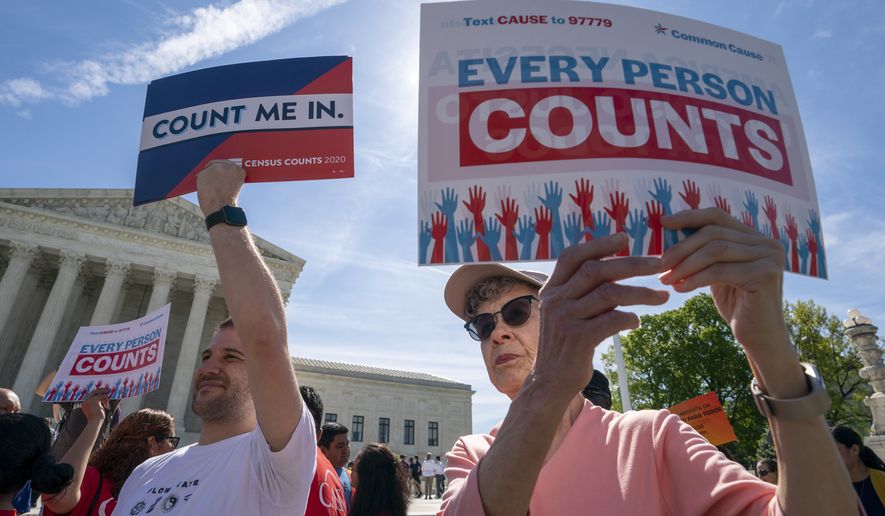OPINION:
The U.S. Supreme Court heard arguments this week on whether the Trump administration can mandate that the U.S. Census, to be taken next year, ask a simple and logical question about who is a citizen and who is not. Regardless of what the court decides, it’s a controversy that is not likely to go away.
Two lower courts have overturned the administration’s plan to ask the question. Led by New York, the states opposing asking the question argue that merely to ask violates the Census Bureau’s long-standing procedure for testing questions before they are added to the questionnaire. The question at issue is whether making changes without extensive testing would ensure an undercount.
Asking too many questions might depress the number of minority responses. They argue that using Social Security and Internal Revenue Service data should suffice to supplement the information gathered in answers to other questions. Eric Holder, the former U.S. attorney general, is leading the charge against adding the citizenship question. “In deciding to add this question without even testing its effects,” he says, “the administration is departing from decades of census policy and ignoring the warnings of census experts.”
Mr. Holder and his like-minded sound like they don’t want to ask the question because they won’t like the answers. “Too much information” is hardly a persuasive argument. The United States government has long sought to ascertain how many of the people living here are citizens. Between 1820 and 2000, all but one decennial census included a question regarding immigration and/or nation of birth. The only difference this time is that the administration is seeking to add the question to each single census form, rather than to the long form “Community Survey” that is sent to 1-in-6 households. That does not constitute a departure from “decades of census policy.”
Worrying about undercounts in this way does not pass the laugh test. In the year 2000, 66 percent of households did not respond to the short form census; in the same year, only 54 percent returned the long form. Undercounts are always a concern, which is why, every 10 years the Census Bureau hires thousands of people to go door-to-door to conduct a head count. Despite the histrionics, Commerce Secretary Wilbur Ross, who oversees the Census Bureau, says “neither the Census Bureau nor the concerned stakeholders could document that the response rate would in fact decline materially [if the question is included].”
Advocates further fret that the Trump administration will use the citizenship question to strengthen deportation and immigration enforcement efforts. But federal law already bars sharing census data with law enforcement agencies conducting deportations.
The census, which is mandated by the U.S. Constitution, is a vitally important exercise. It is crucial to allocating and drawing congressional districts, which ensures that every American is represented fairly. But the Census does much more than that. As the Census Bureau itself explains, “We ask questions about a person’s place of birth, citizenship, and year of entry into the United States to create data about citizens, noncitizens, and the foreign-born population. Agencies and policymakers use our published statistics to set and evaluate immigration policies and laws, understand the experience of different immigrant groups, and enforce laws, policies, and regulations against discrimination based on national origin. These statistics also help tailor services to accommodate cultural differences.”
Those who want to strip the citizenship question from the next census seek, witting or unwitting, to under-inform policymakers. They would prevent the nation from knowing and understanding the full measure of knowledge about itself. The Trump administration further points out that the citizenship question is important to make sure the Voting Rights Act is fully enforced, a goal that liberals and Democrats alike surely share. We all deserve to know the full story.




Please read our comment policy before commenting.